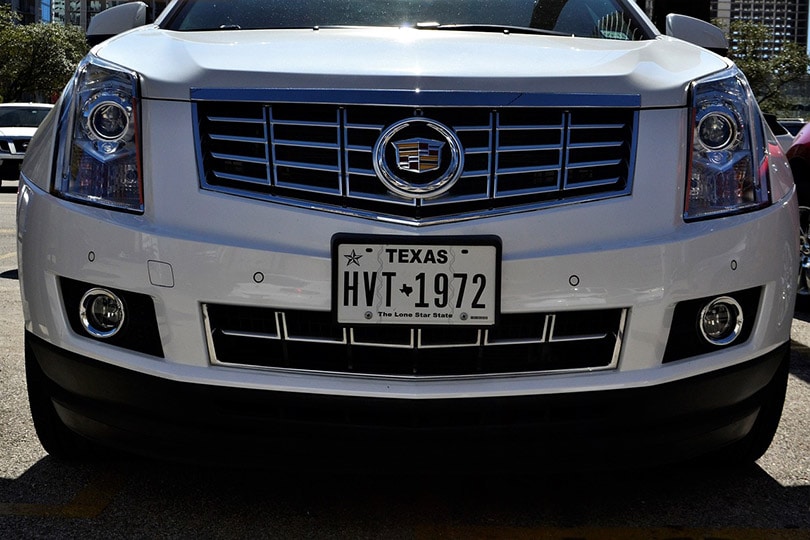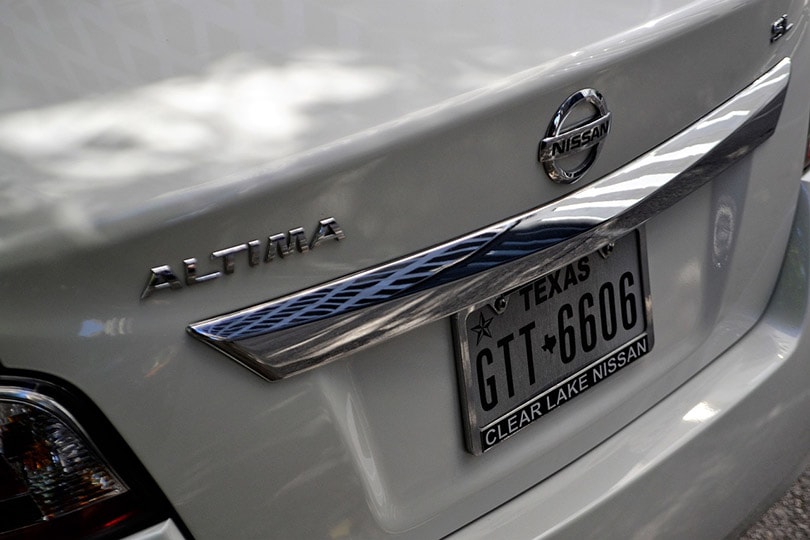Can I Use My Old License Plate On My New Car? What You Need To Know!
-
Pete Ortiz
- Last updated:

When purchasing a vehicle, one of the most important issues that arise is the issuing of a license plate. Operating an unregistered vehicle is against the law and can lead to run-ins with the police. But dealing with the Department of Motor Vehicles (DMV) can be a frustrating and expensive process. That has led many people to wonder if they can simply use their old license plate on a new car.
Simply taking the plate from one vehicle and screwing it onto another sounds better than an afternoon at the DMV. But is it legal? Can you use your old license plate on a new car? The quick answer is most likely yes, but it may take a bit of leg work. Read on to ensure you’ve got the green light on using your old license plate on your new car.
In Most Cases, Yes
The answer in most cases is yes; you can use an old license plate on a new car. But there is a catch—the plate has to be transferred through the DMV. There might still be fees and a waiting period to do a plate transfer. However, the good news is most license plates can be transferred. That means you don’t have to memorize a new license plate number. If you have a vanity plate or specialized plate, those can often be transferred too, which saves a lot of money.
Not every license plate can be transferred. There are rules about used car sales and the owner of the original license plate that vary by state. Some states require a fresh plate to be issued upon purchasing the vehicle, even before the car rolls off the lot. The problem is all of these rules vary from state to state, and keeping track of them is a full-time job.

Rules Vary By State
The DMV is administered by each state. While many states have overlapping rules, each governs its roads differently and independently. That means some states might have an easy license plate transfer system while others don’t. The easiest way to learn the local rules is to look them up online or go into the DMV and ask. But wait, isn’t that what we were trying to avoid by doing a plate transfer in the first place? Partially yes, but unfortunately, dealing with the DMV is a necessary part of buying and registering a car. Not following the proper rules can have catastrophic repercussions.
It Is Imperative To Go Through The DMV
While it might sound easy enough to simply take an old license plate and slap it onto a new car without going through the DMV, that is a terrible idea. You have to register all plate transfers and vehicles with the local DMV. Not doing so can land you in serious trouble with the law.
Law enforcement is equipped with state-of-the-art scanners that can run license plates remotely. When a license plate gets scanned, the information tied to the plate via the DMV is displayed to the officer. That information includes the name, registration status, make, model, and year of the vehicle. If that information does not match the car, law enforcement can be led to believe that the car has been stolen. And that can be a scary prospect for any driver.
It might sound harmless and innocent to buy a new red pickup truck and take your plate from the old pickup truck without telling the DMV, but the police won’t see it that way. If your old truck was a blue crew cab and your new truck is a red four-door, the discrepancy will lead to a stop and possibly an arrest. Then you will have to explain to the police why you transferred the plates without the DMV, and then you’ll have to pay all those DMV fees anyway.

Final Thoughts
So, is it possible to use an old license plate on a new car? Yes, but it has to be done through the proper channels. In most states, the plate transfer process is simple and easy, but rules differ from place to place. Always check with the DMV before transferring any plates, and never transfer license plates without informing the DMV of your intentions. Improperly transferring license plates is a crime and can lead to some seriously sticky situations that everyone should avoid.
Featured Image Credit: Jesiel Rubio, Unsplash
Contents



